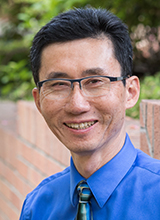
Treatment: Telepsychiatry


Mark Duncan
Personal Statement
I have pursued a career at the intersection of mental health and primary care, training in both family medicine and addiction psychiatry. I currently practice in various integrated care settings as a consulting psychiatrist and in the outpatient adult psychiatry clinic. I am the co-medical director for the University of Washington Psychiatry and Addiction Case Conference (UW PACC), a weekly online learning collaborative to help community providers across the state improve their psychiatric and addiction clinical skills. My area of interest is focused on improving addiction and psychiatric treatment to primary care settings. I also spend a significant amount of time training both family medicine and psychiatry trainees and fellows on integrated treatments for substance use disorders.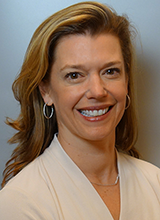
Emily H Trittschuh
Personal Statement
As a clinical neuropsychologist who has specialized in aging, I have over 20 years of experience in the field of geriatrics. My clinical work and research has been focused on the full continuum of cognitive aging – from neurodegenerative disease of varied etiologies to healthy brain aging into the 90s and beyond. I have been based at the VA Puget Health Care System since 2008. In this time, I have developed additional and complementary interests in the older adult Veteran who has PTSD, especially how this disorder can interfere with cognition and might contribute to decline and also in the area of reducing disparities in neuropsychological care for individuals who are transgender and gender diverse. Currently, I am the Associate Director for Education and Evaluation for the VISN 20 Geriatric Research Education and Clinical Center (GRECC) at VA Puget Sound. I am a Professor in the Department of Psychiatry. Provision of training for future geriatric care providers (MD, PhD, RN, SW, etc) is an important part of my personal mission. I also enjoy connecting with the older adult community through various events and at local senior centers.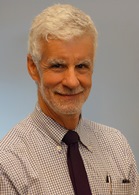
Mark Sullivan
Personal Statement
My clinical service and research focuses on the interaction of mental and physical illness, especially in patients with chronic pain. Much of my research in recent decades has focused on the risks of treating chronic pain with opioids. I have developed educational programs and outcome tracking tools to assist with opioid treatment of chronic pain. I have published a book about patient empowerment in chronic disease care, The Patient as Agent of Health and Health Care (Oxford, 2017). I have another book written with Jane Ballantyne forthcoming, The Right to Pain Relief and other deep roots of the opioid epidemic (Oxford, 2022).
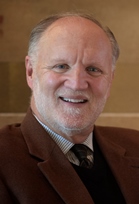
Richard C. Veith
Personal Statement
| I am a Seattle native who has spent my entire academic career at the University of Washington School of Medicine. I joined the faculty of the UW Department of Psychiatry and Behavioral Sciences in 1977 and was based at the Seattle VA Puget Sound Health Care System. I joined the Seattle-American Lake Geriatric Research, Education and Clinical Center (GRECC) in 1977 as a clinical investigator and later served as GRECC Director from 1987-1998. In 1998, I was appointed Chair of the Department of Psychiatry and Behavioral Sciences and held this position until February, 2014. I am certified by the American Board of Psychiatry and Neurology with Added Qualifications in Geriatric Psychiatry and am listed in America’s Top Doctors and Best Doctors in America. I am recipient of the 2005 American Academy of Child & Adolescent Psychiatry, Robert Cancro Academic Leadership Award: Best Chair. I have conducted extensive research on the treatment of depression in patients with heart disease and stroke and has published more than 140 scientific publications. I am active in community efforts to improve the quality of care for the seriously mentally ill and with my faculty colleagues am implementing regionally, nationally, and internationally innovative and highly effective models of care that integrate mental health care into primary care settings. I am working with medical schools and the health ministries in Vietnam and Cambodia to strengthen psychiatric education, expand the mental health workforce, and develop delivery systems for psychiatric care in those countries. |
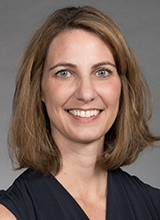
Jennifer Piel
Personal Statement
As a clinical and forensic psychiatrist, my professional roles include being the Director of the UW Center for Mental Health, Policy, and the Law; Associate Professor in the Department of Psychiatry; and a Staff Psychiatrist at the VA Puget Sound. I hold multiple board certifications: Psychiatry, Forensic Psychiatry, Brain Injury Medicine, and Sports and Performance Psychiatry. In addition to my medical training, I earned my law degree from the University of Washington. As a member of the American Academy of Psychiatry and the Law (AAPL), I serve on the Ethics, Research, and Resident Education Committees and I twice earned AAPL’s Young Investigator Award. I am the Legal Digest Editor for the Journal of the American Academy of Psychiatry and the Law. I have served as an expert witness or consultant in legal cases involving criminal and civil competencies; criminal responsibility; malpractice; personal injury; sexual and gender harassment; and fitness for duty, among others. I teach courses in forensic mental health at the University of Washington and speak locally and nationally on topics related to psychiatry and the law.
Mark Stein
Personal Statement
I am clinical psychologist and a Professor of Psychiatry and Pediatrics, and a clinical researcher specializing in ADHD throughout the lifespan. I direct the PEARL Clinic (Program to enhance attention, regulation, and learning) at Seattle Children’s. The PEARL Clinic is based on a multidisciplinary and collaborative care model which works closely with PCP’s who refer families to PEARL for evaluation and access to our behavioral group treatment programs and treatment recommendations. The PEARL clinic also provided multidisciplinary training for psychologists, psychiatrists, pediatricians, family medicine physicians, and medical students. The majority of my clinical work involves diagnostic evaluations and consultations for the parents, referring physician, and schools. My research emphasis is on personalizing ADHD treatment, and determining how best to combine and sequence interventions throughout the lifespan for individuals with ADHD. I have assisted in the development of several stimulant and non stimulant medications, and participated in many clinical trials. Currently, we are conducting a study for parents with ADHD who have young children with ADHD symptoms where we are treating the parent with medication and behavioral parent training or behavior parent training. I am also investigating the relationship between genetic factors and ADHD treatment response. Other areas of interest include sleep problems and overlap with ADHD, and novel treatments such as Trigeminal Nerve Stimulation (TNS) and augmentation strategies such as mindfulness and physical exercise or activity level.
Heather Carmichael Olson
Personal Statement
I am a psychologist who carries out research, provides community education to a broad range of audiences, trains postgraduate students, works on public policy– and has served as a clinician with children and families for many years. My main interests are fetal alcohol spectrum disorders (FASD), early childhood mental health, and interventions for children born prenatally exposed to alcohol and other drugs and their families. My research is currently based at the Seattle Children’s Research Institute, but I also work in collaboration with UW researchers– and scientists at the University of Rochester in New York and multiple other academic institutions. A main research focus has been the Families Moving Forward (FMF) Program, a family-focused FASD intervention, now being disseminated primarily in the USA and Canada. The FMF Program is also now being translated into a mobile health application, called FMF Connect, for even broader use. Through Seattle Children’s, I co-direct a pilot service focused on assessment and short-term consultation for youth with prenatal substance exposure (including alcohol), and their families. I also offer mental health services to a broad range of young children and develops research focused on early childhood mental health. Over the years, beyond research and clinical work, I have been able to work toward change in national US public policy, collaborate with Indigenous communities and researchers in remote Northwestern Australia, and train dedicated young professionals in psychology and psychiatry. I am grateful for these remarkable career opportunities… and the chance to meet so many resilient and inspiring families. Note that you can only reach me through my Seattle Children’s email, at: heather.carmichaelolson@seattlechildrens.org
Christopher Varley
Personal Statement
My primary interest is Graduate Medical Education and Faculty Development in Child and Adolescent Psychiatry. I was the program director for the Child and Adolescent Psychiatry residency at the UWSOM for 32 years. I am now the Director of Education and Faculty Development in the Division of Child and Adolescent Psychiatry. My clinical interests are in pediatric psychopharmacology, particularly re ADHD.
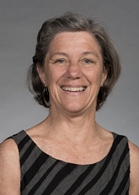
Ann Vander Stoep
Personal Statement
| As a child psychiatric epidemiologist, I conduct research about the etiology of child and adolescent mental health conditions and about the effectiveness of interventions that are designed to address these conditions. I co-direct the Developmental Pathways Research Program, the centerpiece of which is the Developmental Pathways Project, a longitudinal study of a cohort of 521 adolescents recruited as 11-12 year-olds from Seattle public middle schools. Members of the cohort are currently undergoing their eighth assessment that has followed their mental health and associated factors from early adolescence through young adulthood. DPP has contributed to our understanding of the development of co-morbid depression and conduct problems, as well as antecedents and consequences of problem substance use. I have collaborated with intervention researchers to develop and test school-based interventions to address mental health problems that interfere with academic performance and social well-being and to conduct randomized controlled trials of interventions that extend the reach of child mental health services to underserved communities. I teach public mental health research methods to graduate students at the University of Washington and to faculty and trainees with an research interest in mental health at the University of Nairobi in Kenya. I provide research mentorship to many UW masters and doctoral students in epidemiology and health services and to junior faculty in the Division of Child and Adolescent Psychiatry. |
